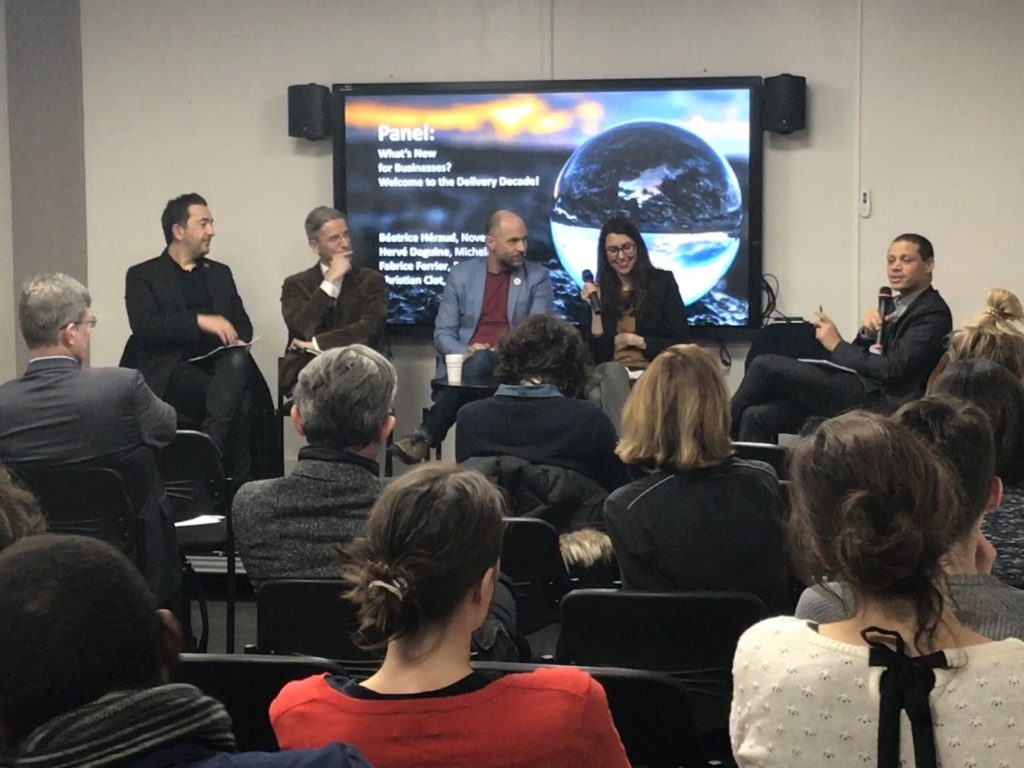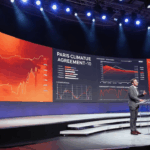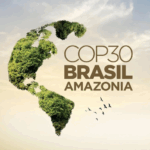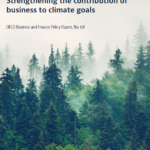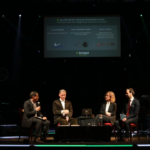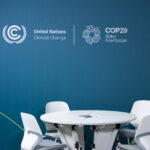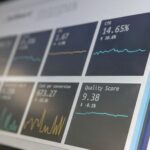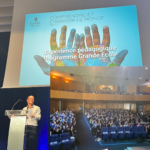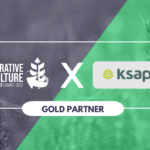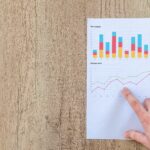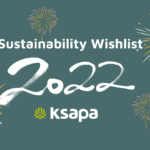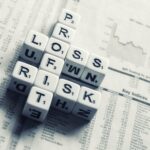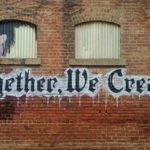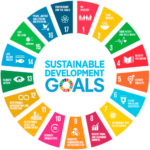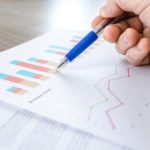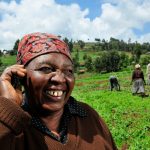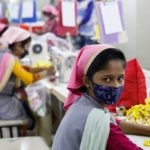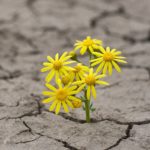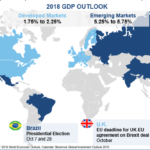We decided to kick off 2020 with a friendly annual event. A great way to exchange with different decision-makers, practitioners and experts and discuss concrete solutions to amplify the contribution of private actors to the environmental and social challenges of the decade. Here are key takeaways and different useful ingredients shared across interveners to maintain a positive attitude. Brief overview
A Consensual Diagnosis of Societal Trends
At the beginning of the year 2020, Ksapa had organized an event to bring together different decision-makers, practitioners and experts from various backgrounds – business executives, financiers, accountants, civil society activists, journalists, managers, development experts, consultants, investors, lawyers, … The opportunity to present Ksapa’s activities and 2020 roadmap, but above all to exchange and share ideas with our panel members and the people who came to attend these exchanges. A few lessons have come usefully to show the deep convergence of points of view on various simple observations:
- The next few years are widely perceived as years of change and profound transformations, where we must remain attentive to society, innovate and accelerate the integration of environmental and social issues to ensure that economic and financial activities remain sustainable.
- Climate, biodiversity, management of inequalities and ethics largely structure the environmental and social agendas of individual citizens as well as of collectives and organizations. However, although these concerns are largely consensual, they are not central to everyone’s daily life, with a certain ease in shifting responsibility to other individuals or constituencies.
- The recent open conflicts (Yellow vests in France, or recent events in Chile, Saudi, India, Algeria, Lebanon…) illustrate both how brutal the changes underway are, but also how difficult it is for public authorities or economic players to ensure that structured changes are accompanied by constructive and effective stakeholder dialogue.
Thus, by carrying out small real-time surveys with the participants, we were able to discuss a balance that is difficult for everyone to find between being pessimistic about the collective dynamics observed, and at the same time optimistic, driven by individual convictions, particularly about the necessary changes in practices. Everyone wants to contribute to a societal movement that achieves as much as possible the Sustainable Development Goals set out in the Agenda 2030. However, a rational reading of the facts, figures and current geopolitical and economic dynamics does not encourage optimism. Then all would be lost? No, and this is the positive dynamic that emerged throughout the exchanges that followed…
Innovative Technologies and Finance Offer Concrete Solutions to Accelerate the Private Sector’s Contribution to SDGs
The event was an opportunity for its co-founders Farid Baddache & Raphaël Hara to present a few activities illustrating different programmes carried out by Ksapa in its advocacy and impact investing pillars, after a brief presentation of its advisory pillar.
- The introduction to the “Towards 2030” report provided an opportunity to discuss some of the conclusions drawn from this work, offering a wide range of concrete solutions that need to be explored in order to amplify the transformation of enterprises towards greater resilience and inclusion. Many digital technologies have a strong potential to advance various complex social and environmental issues. A range of innovative financial tools is available to significantly increase private investment in SDGs. These prospects have been discussed without any sort of naivety or candor about the energy and ethical challenges associated with these tools. Responses to a quick online survey carried out live almost unanimously confirmed the relevance of further exploring these topics for companies and investors.
- The event was also an opportunity to present a thematic investment programme demonstrating by example how to put these concepts into practice, and to provide new solutions by relying on digital solutions and innovative financial instruments to accelerate SDGs. Ksapa thus presented the SUTTI programme – Scale Up Technical Training Initiative. SUTTI is an investment programme aimed at designing and organizing large-scale vocational training programmes. These are aimed at farmers working on small-scale farms in the production of different agricultural raw materials in fragmented supply chains, mainly in South-East Asia. These programmes aim to bring together an ecosystem of industrial, IT, development, etc. partners to organize schemes that are economically efficient and make a positive contribution to social and environmental aspects.
An Inspiring Panel to Uncover the Ingredients for a Positive Attitude
The event was also an opportunity to interact with a panel designed and moderated to offer a broad and complementary perspective on a vast but ultimately simple question: What is new to tackle the new decade with a chance of reaching SDGs by 2030? The panel was thus able to bring together the perspectives of different speakers:
- Christian Clot, Explorer and Researcher. Founder and President of the ADAPTATION Institute
- Béatrice Héraud, CSR Editor-in-Chief at Novethic
- Hervé Deguine, Michelin‘s Director of Relations with NGOs and Civil Society Organizations
- Fabrice Ferrier, Director of Focus 2030
From these discussions, which fascinated the participants, we finally wanted to retain, for action, a few relatively simple overall conclusions, which it will be useful to remember and share regularly, in order to fulfil our duty as a company with a mission eager to instil change and driven by the principle of a moral obligation to maintain a positive and constructive attitude to this effect .
1. Mutations in progress. Better get on the train!
The state of science underscores the extent to which our cognitive abilities are constantly adapting to the social, contextual and environmental dynamics in which we find ourselves. The digital and environmental revolutions are actively changing us, both individually and in our collective interactions.
Various polls also show how public opinion (United States, Germany, United Kingdom, France) is changing and wants to see greater involvement of States and stakeholders in societies on environmental and development issues. There have been major shifts and a substantial increase in importance in the recent years.
On the corporate and investor side, the maturity gap on climate issues between COP 15 (2009) and COP 25 (2019) is staggering. Although obviously largely insufficient in absolute terms and in the face of the stakes, Davos 2020 was an opportunity to see how many economic decision-makers are now multiplying their commitments to carbon neutrality by 2050. Biodiversity and inequalities are also increasingly pressing issues for which governments and economic players are urged to act with greater ambition and impact by public opinion, youth and other stakeholders.
Changes are inevitable, and the climate issue is now identified as a priority. It would be perilous not to take this train of changing practices, for organizations that have not already done so. Addressing issues of biodiversity and inequalities, particularly in order to generate positive contribution on those challenging fronts is of growing importance and seen to increase significantly in the years to come.
2. High-speed mutations possible. Better be prepared!
The example of Rwanda provides some key lessons. A country can experience one of the worst genocides known to mankind, completely destroyed and ruined in 1994, and be presented as an economic model in Africa only 15 years later. In the face of the major environmental and social crises we are currently experiencing, here is an example, despite its limitations (size of the country, failure to respect human rights for example, extent of trauma), useful for reflecting and appreciating the capacity for rapid change in our societies. At the individual level, while palaeoanthropology lingers over a long period of time to agree on important neuronal mutations, various recent scientific studies show how the brain can evolve and adapt over equally short periods of time to respond and adapt to its social and physical environment and to essential adaptation needs. Thus, we find that both societies and individuals carry capacities for high-speed mutation.
To this end, various points of vigilance have been discussed. For example, the international logic, carried in France by the Pacte law, pushing companies to reflect on their Raison d’Être is a paradigm shift in terms of corporate acceptability. Same in the US when 180 top US CEOs say companies should have a corporate purpose. The concept imposes a shift from a logic of sustainability performance assessing past performance to a logic of impact measuring the achievement of a purpose in terms of environmental and societal issues geared towards future challenges. Also, no company, no matter how old it is, can rest on its achievements. Leadership, risk-taking, innovation and permanent adaptation around a strong, structuring and inclusive corporate project remain indispensable levers for permanent adaptation to markets and societies that are constantly changing.
3. Mutations, ruptures and dysfunctions. Better to accompany the changes!
Finally, mutations obviously generate ruptures and dysfunctions. It is easy to give up in the face of sluggishness and the complexity of moving lines. The Greta Thunberg generation looks with cynicism and criticism at the lack of progress finally made since the Meadows report published nearly 50 years ago…
Different ingredients were thus shared in order to maintain a positive attitude and bring about change. Here are a few to meditate on individually and in group regularly:
- Love. As long as one feels for “others” (family, community, other social group), one can draw energy to change and bring about change around oneself
- Inclusive approach. Changes that fail are characterized by an inability to be inclusive and to take into account the diversity of its stakeholders in their complexity. The difficulties brought about by Just Transition issues provide an illustration of this. A truly inclusive approach requires that even – and especially – the most vulnerable segments of the population be taken into account and truly integrated into the chosen approach. This implies remaining constantly attentive to society in its diversity and complexity, without confining each other in boxes reduced to mere postures
- Sincere in the approach. Different viewpoints have shown the extent to which social bodies distrust institutions ( governments, businesses, etc.) and bodies in between. However, in a climate of mistrust, it is indeed difficult to accompany change. It is by being sincere – explaining, listening actively, remaining transparent, doing what we say – that we create trust
- The right to make a mistake. The right to lose money. We live in managerial cultures of objective, key performance indicator and result monitoring. This leaves too little room for innovation, error and failure, even though they often teach us a great deal. Since the changes that are taking place offer a leap into the unknown in many respects, it is essential to create a collective culture that offers the right to take risks, the right to make mistakes and to value these initiatives in order to learn from them – and simply to do better
Conclusions. Positive Attitude
A useful event for sharing perspectives and validating the relevance of a consensual diagnosis with an expert and diverse group. A galvanizing event for the participants who found inspiration and density of content to reflect and innovate with a view to contributing, individually and collectively, to more resilient and inclusive societies. Faster.
More opportunities to engage with us here, subscribing to our newsletter here, or following us on social media here.
Président et Cofondateur. Auteur de différents ouvrages sur les questions de RSE et développement durable. Expert international reconnu, Farid Baddache travaille à l’intégration des questions de droits de l’Homme et de climat comme leviers de résilience et de compétitivité des entreprises. Restez connectés avec Farid Baddache sur Twitter @Fbaddache.

